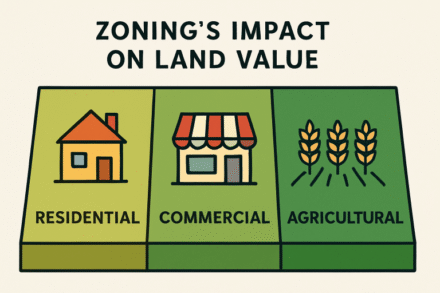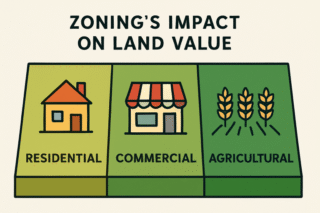Key Takeaways
- The executor safeguards estate assets, organizes legal and financial steps, and distributes inheritances according to the will.
- Strong organization, transparency, and neutrality are essential for avoiding disputes and ensuring compliance with the law.
- Professional resources and legal support often streamline challenging aspects of probate administration.
Table of Contents
- Immediate Duties After Death
- Initiating the Probate Process
- Identifying and Valuing Estate Assets
- Settling Debts and Taxes
- Distributing Assets to Beneficiaries
- Managing Ongoing Administrative Tasks
- Addressing Potential Challenges
- Conclusion
Serving as an executor is a significant responsibility that requires both diligence and a thorough understanding of legal and financial matters. Executors are responsible for managing the estate of a deceased person, ensuring that debts are settled, assets are distributed according to the will, and all legal requirements are fulfilled. This role often involves coordinating with banks, creditors, and beneficiaries, as well as maintaining accurate records of all transactions. Beyond administrative duties, an executor must approach the position with impartiality and integrity, balancing the needs and expectations of multiple parties while honoring the wishes of the deceased.
Given the complexity of probate laws and estate management, many executors benefit from the guidance and expertise of professionals. Consulting a probate lawyer in California can help navigate legal procedures, avoid common pitfalls, and ensure compliance with state regulations. This support is especially valuable when estates involve real estate, investments, or disputes among heirs. By combining careful planning with expert advice, executors can fulfill their duties efficiently and responsibly, providing peace of mind for themselves and the beneficiaries they serve.
Immediate Duties After Death
The executor’s responsibilities begin immediately after death, starting with locating the original will and filing it with the appropriate probate court to initiate the legal process. It’s also crucial to secure all property, such as real estate, valuables, or vehicles, to prevent loss, damage, or potential theft.
Obtaining several copies of the death certificate is also essential in this early stage. Banks, government agencies, and creditors will require official documentation before allowing any action on accounts or claims. This initial phase sets the groundwork for a well-organized and efficient administration of the estate.
Initiating the Probate Process
Probate is the legal process that validates the will and authorizes the executor to act officially. The executor files a petition with the probate court and, once appointed, receives “letters testamentary.” These legal documents allow access to bank accounts, authorize the sale or transfer of assets, and enable the executor to pay bills and settle affairs.
This step also includes notifying all interested parties—family, beneficiaries, and creditors—that the estate is being probated. In California and other states, public notice in local newspapers may be required to inform unknown creditors of the process, helping to prevent future claims.
Identifying and Valuing Estate Assets
Next, the executor must create a comprehensive inventory of all the decedent’s assets. This includes real estate, personal property, retirement funds, life insurance proceeds, investments, and any digital assets such as online accounts or cryptocurrencies. Meticulously cataloging these items provides a clear picture of the estate’s total value, simplifying subsequent steps such as paying debts and distributing inheritances. Professional appraisals may be required for high-value or hard-to-assess assets.
Settling Debts and Taxes
Before assets can be distributed to heirs, the executor must identify and settle any outstanding debts, such as credit card bills, mortgages, or medical expenses. They are also responsible for filing the final income tax return on behalf of the deceased and, if applicable, estate tax returns. Taxes can be especially complex if the estate exceeds federal or state exemption amounts, or if the assets are located in multiple jurisdictions.
It’s essential to proceed carefully—failure to fully address debts and taxes may lead to personal liability for the executor or delay the distribution of assets. This phase often proves to be the most complicated, particularly for large or contested estates, and underscores the importance of consulting with financial and legal professionals.
Distributing Assets to Beneficiaries
After all debts, taxes, and expenses have been paid, the executor is responsible for distributing the remaining assets in accordance with the will. This requires precise recordkeeping and transparency—beneficiaries are entitled to detailed accounts showing what was collected, spent, and distributed.
Reporting must be accurate and comprehensive to prevent disputes and build trust among heirs. Once the court and beneficiaries accept this final accounting, the estate can be formally closed.
Managing Ongoing Administrative Tasks
Throughout probate, the executor is required to maintain thorough records of every action taken. This includes communication with legal professionals, correspondence with beneficiaries and creditors, and documentation of all financial transactions. Clear documentation is essential to demonstrate good faith and avoid misunderstandings or accusations of mismanagement.
Regular updates to beneficiaries about the estate’s status and anticipated timeline can also help defuse tensions and improve transparency, reducing the risk of disputes.
Addressing Potential Challenges
Executors sometimes encounter disputes between beneficiaries, difficulty locating assets, or unexpected tax complexities. They may also need to mediate family disagreements, resolve ambiguities in the will, or defend the estate against legal challenges. When challenges arise, it’s prudent to consult attorneys, accountants, or other experts to navigate these difficulties smoothly.
Executors should never hesitate to seek judicial intervention when necessary—probate courts are equipped to resolve conflicts and provide legal clarity to ensure the decedent’s wishes are ultimately honored.
Conclusion
Serving as executor requires a blend of legal knowledge, organizational skill, and empathy. By acting transparently and fulfilling their duties with care, executors provide a vital service, ensuring that a loved one’s legacy is respected and their estate is distributed fairly and in accordance with the law. When uncertainties or disputes arise, engaging the right professionals can make a significant difference and provide peace of mind for all parties involved.






